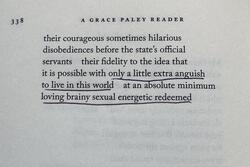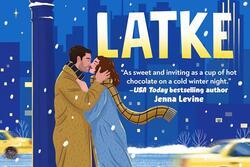Adrienne Rich: navigating hope
The news of Adrienne Rich’s death yesterday at age 82 sent me immediately to my bookshelves and an extended swim through the currents of words she has left behind. All writers believe in the power of words—and maybe especially poets, whose words are fewer and so carefully chosen—but for me Rich’s writing particularly and persuasively argued for the ability of words, language, expression to create new realities, to change the world.
Rich often used the metaphor of the map. In “Diving into the Wreck” she writes “The words are purposes./The words are maps.” In part XVIII of “Twenty One Love Poems” she declares “the maps they gave us were out of date/by years.” In “Dreamwood,” she writes of the scratches on a wooden typing stand as a poet’s map: “It would be the map by which/she could see the end of touristic choices,/of distances blued and purpled by romance,/by which she would recognize that poetry/isn’t revolution but a way of knowing/why it must come…” An entire collection of her poems is titled “An Atlas of the Difficult World.” Words, to Rich, give direction for life, by bringing to life those things that have been silenced, unacknowledged, unknown, unseen. In Rich’s words, “The story of our lives becomes our lives”—how we narrate our own experiences shapes the life that we are able to lead.
In her own life, Rich traveled a great distance from her Baltimore childhood as the daughter of a Jewish father and a southern Christian mother, who taught her to keep quiet about her Jewishness, to learn how to “fascinate” men, and also encouraged her to write. She became a poet, a wife, and a mother. She lived the second half of her life as a renowned, if controversial writer, a feminist and a lesbian, an activist, and a voice for the central political role and responsibility of art.
Rich was a prolific prose writer as well as poet, and nearly all of her essays can be called “groundbreaking.” I remember first encountering two of her most influential prose pieces—Of Woman Born: Motherhood as Experience and Institution (1976) and “Compulsory Heterosexuality and Lesbian Existence” (1980)—in my first women’s studies class and feeling transformed by her incisive critical analyses of the institutions of motherhood and heterosexuality and her concept of “the lesbian continuum.”
Rich’s love for women helped her explore what it meant to break the rules and create something new, and the power and fear bound up in this experience. In her “Twenty One Love Poems,” she wrote:
The rules break like a thermometer,
quicksilver spills across the charted systems,
we’re out in a country that has no language
no laws, we’re chasing the raven and the wren
through gorges unexplored since dawn
whatever we do together is pure invention…
In prose (On Lies, Secrets, and Silence, 1979), she put it this way: “The connections between and among women are the most feared, the most problematic, and the most potentially transforming force on the planet.”
I am always struck by Rich’s ability to hold both the power and danger of things—language, invention, women’s relationships—at once. She captured this difficult balance poignantly in a poem called “Power,” in which she wrote about Marie Curie’s radiation sickness: “She died a famous woman denying/her wounds/denying/her wounds came from the same source as her power.”
If she insisted on the power of poetry to change the world, she was also realistic about its potential misuse. In “North American Time,” she wrote:
Everything we write
will be used against us
or against those we love.
These are the terms,
take them or leave them.
Poetry never stood a chance
of standing outside history.
At the same time (as I’ve written about before), she refused to let her words and her art be co-opted by those whose politics she found dangerous; for example, in 1997 she turned down the National Medal of Arts in 1997, explaining “Art—in my own case the art of poetry—means nothing if it simply decorates the dinner table of power which holds it hostage.”
As a Jewish feminist, I was particularly moved by Rich’s attempt to come to terms with her own Jewish identity and to understand the parallels or overlaps in her experiences as a woman and as a Jew. First, she needed to give voice to the silences in her family’s—and particularly, her father’s—attitude toward Jewishness and take accountability for her own ambivalence, which she did in her powerful 1982 essay “Split at the Root: An Essay on Jewish Identity.” A few years later, in “If not with others, how?” she gave feminism credit for prompting her “to look at the starved Jew in myself.” Though politically involved in some Jewish causes and organizations—serving as an active member of the progressive group New Jewish Agenda and as a founding co-editor of the Jewish feminist journal, Bridges—she also expressed her ongoing struggles to find a place in the Jewish community. In her poem “Yom Kippur 1984” she asks “What is a Jew in solitude?/What would it mean not to feel lonely or afraid/far from your own or those you have called your own?”
Poetry, in Rich’s hands, was a refuge—both a place of quiet solitude and a place for human connection. She argued for art as a human right, a necessity, feeding a deep, sometimes desperate, human need. And even when she gave voice to despair, she believed art also offered a wellspring of hope. The last line of her poem “Dreams Before Waking” asks: “What would it mean to stand on the first/page to the end of despair?”
As I reread Rich’s pages, as I know I will do again and again in the coming years, I’m taking that question to heart, seeing in her death not just a loss but a challenge to keep despair at bay and to move toward hope. Her memory and her voice, still strong even in death, will be a blessing.








After I read "Of Woman Born" I was deeply shaken and grateful. I sent Adrienne two of my lithographs in appreciation. Marianne Lieberman